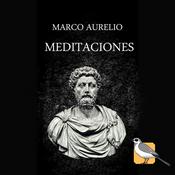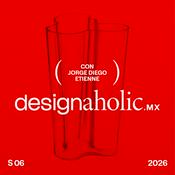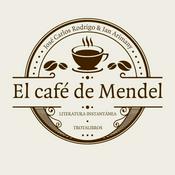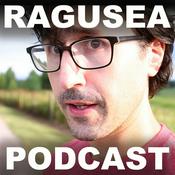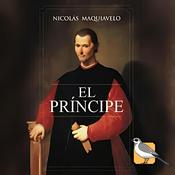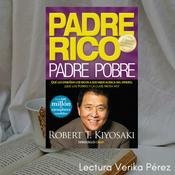86 episodios
V5 Food and Ag Bio Fund: Kristian Bennetsen on the €2B Co-Investment Opportunity and the "CDMO Play" for Cultured Meat
19/2/2026 | 23 minV5 Verde Equity: Kristian Bennetsen shares how to get funded in 2026
Investment Climate Podcast: Fundraising Playbooks From Food Tech CEOs and VCs
In this podcast series, Alex Shandrovsky interviews investors about benchmarks for funding Alt Proteins in 2025 and uncovers the investment playbooks of successful Climate Tech CEOs and Leading VCs.
Podcast Host Alex Shandrovksy is a strategic advisor to numerous global food tech accelerators and companies, including alternative proteins and cellular agriculture leaders. His focus is on investor relations and post-raise scale for agrifood tech companies. This podcast is syndicated through our media partners, Foodtech Weekly and Vegconomist.
Episode 70: V5 Food and Ag Bio Fund: Kristian Bennetsen on the €2B Co-Investment Opportunity and the "CDMO Play" for Cultured Meat
In this episode, I sit down with Kristian Bennetsen, General Partner of V5 Verde Equity and the newly launched V5 Food and Ag Bio Fund. With a target of €50M and a first close of €20M imminent, Kristian is targeting the often-neglected TRL 7-9 stage—companies with proven, operational technology ready to scale. Drawing on his experience founding Roslin Technologies (the UK’s largest ag-tech startup), Kristian breaks down his unique "Co-Investment" strategy, which unlocks up to €2B in infrastructure capital to help portfolio companies build factories in Asia and the Middle East. We discuss why he is betting on CDMOs (Contract Development and Manufacturing Organizations) rather than consumer brands in cellular agriculture, and why land-based aquaculture (RAS) is a core thesis for 2025.
🎧 Listen to the full episode to hear why Kristian puts his own personal capital into the fund to keep his "hand on the stove."
Key Facts V5 Verde Equity:
Goal: To invest in Northern European animal life science and ag-tech companies at the commercialization stage (TRL 7-9).
Milestone: Launching a €50M fund with a specialized €2B co-investment facility to finance heavy CapEx infrastructure projects globally.
Alex’s Top Findings:
The "Infrastructure Gap" Solution: A €2B Co-Investment Vehicle. VC money is for IP and teams; it isn't efficient for building steel in the ground. Kristian has structured a vehicle that allows sovereign wealth funds and corporates (specifically in the Middle East and Asia) to step in and fund the €100M+ production facilities needed by portfolio companies once the tech is proven. This allows the VC fund to stay agile while still enabling massive scale. "This is like one co-investment opportunity to follow the company around the globe... setting up production facilities in these key markets... It requires north of a hundred million euros to do such an infrastructure investment... The co-investment opportunities arise from that."
The "CDMO" Bet: Don't Pick the Horse, Own the Racetrack. In the volatile cellular agriculture market, betting on a single consumer brand or cell line is risky. Kristian’s contrarian thesis is to invest in the infrastructure (CDMOs) that will process any winning cell line. He believes the immediate value lies in high-margin ingredients (coffee, chocolate, cosmetics) rather than commodity meat, which struggles with unit economics. "I have a really high conviction to scaling a cultured meat with the right CDMO player... You don't know which cell line is gonna prevail and succeed in 20 years' time. But if you have the infrastructure to funnel through, you can always buy in the lines or work with a new player."
Personal Capital as Conviction Signal. Kristian's investment of his own capital into the fund serves as a powerful conviction signal and a clear statement of alignment between GP and LPs. As he put it, “Of course I would invest my own money… if I don’t put my own money in there, why should other people do it?” That mindset reinforces trFLOCEAN: Alexander Fuglesang on leveraging Oil & Gas heritage for Water Tech and the "Flat Round" strategy
12/2/2026 | 24 minFLOCEAN: Alexander Fuglesang shares how to get funded in 2026
Investment Climate Podcast: Fundraising Playbooks From Food Tech CEOs and VCs
In this podcast series, Alex Shandrovsky interviews investors about benchmarks for funding Alt Proteins in 2025 and uncovers the investment playbooks of successful Climate Tech CEOs and Leading VCs.
Podcast Host Alex Shandrovksy is a strategic advisor to numerous global food tech accelerators and companies, including alternative proteins and cellular agriculture leaders. His focus is on investor relations and post-raise scale for agrifood tech companies. This podcast is syndicated through our media partners, Foodtech Weekly and Vegconomist.
Episode 69: FLOCEAN: Alexander Fuglesang on leveraging Oil & Gas heritage for Water Tech and the "Flat Round" strategy
In this episode, I sit down with Alexander Fuglesang, Founder and CEO of FLOCEAN, a Norwegian company moving freshwater production to the subsea. Alexander shares the grueling 18-month journey of closing a Series A that involved a mix of philanthropists, sovereign climate funds (Nysnø), specialized VCs (Burnt Island Ventures), and a major strategic (Xylem). We discuss the harsh reality that the water industry is just as conservative as oil & gas, forcing FLOCEAN to pivot from selling massive projects to building a "First of a Kind" (FOAK) unit on their own balance sheet. Alexander also breaks down the specific Project Finance/SPV structure they use to fund high-CapEx infrastructure and how they identified their beachhead market of 94 countries based on depth, scarcity, and geopolitical stability.
🎧 Listen to the full episode to hear how Alexander’s existing investors saved the round by offering a flat valuation term sheet to trigger outside interest.
Key Facts FLOCEAN:
Goal: To decentralize freshwater production by moving reverse osmosis subsea, reducing energy use by 30-50%, and eliminating land use.
Milestone: Closed a multi-stage Series A with Xylem and Nysnø while securing their first municipal client in Norway.
Alex’s Top Findings:
The "Flat Round" Bridge to Strategics. When the Series A dragged into a second closing, and the market cooled, FLOCEAN’s existing investors (Three Bird Partners and Burnt Island) didn't force a down round. Instead, they offered a term sheet at the same valuation to signal confidence. This lack of predatory terms gave Alexander the leverage to shop the deal and eventually land Xylem as a major strategic investor. "Our two lead investors... said we're going to write you a term sheet for the same valuation and we're supporting. If you can take that out there and you can shop around... we will encourage that... that went into triggering the interest of Xylem... and then the round got seriously oversubscribed."
Being ‘Climate Tech’ Can Actually Hurt You. FLOCEAN struggled by being lumped into capital-heavy climate categories like batteries and hydrogen. Their challenge was reframing from “green infrastructure” to “commercial water producer with climate upside.” " It was quite challenging because the physical stuff is capital-intensive, and we were quite early lumped into sort of the climate tech space. We're a water producer with the next generation sort of technology, but we're lumped together with green infrastructure, batteries, and EVs. "
The Pivot: Building "First of a Kind" (FOAK) on Spec. Despite a strong track record in subsea oil & gas, FLOCEAN realized that no client wants to be first, and no infrastructure investor wants to fund the pilot. The pivot was accepting that they had to finance the first commercial-scale unit themselves to prove the technology before unlocking project finance. "We were quite convinced that we could... go straight for a big, profitable commercial project... So we had to really pivot when we understood that nobody wanted to be first... The- FoodSparks: Yoni Glickman shares how to get funded in 2026
Investment Climate Podcast: Fundraising Playbooks From Food Tech CEOs and VCs
In this podcast series, Alex Shandrovsky interviews investors about benchmarks for funding Alt Proteins in 2025 and uncovers the investment playbooks of successful Climate Tech CEOs and Leading VCs.
Podcast Host Alex Shandrovksy is a strategic advisor to numerous global food tech accelerators and companies, including alternative proteins and cellular agriculture leaders. His focus is on investor relations and post-raise scale for agrifood tech companies. This podcast is syndicated through our media partners, Foodtech Weekly and Vegconomist.
Episode 68: FoodSparks: Yoni Glickman on the death of the "Power Law" in FoodTech and the GLP-1 Revolution
In this episode, I sit down with Yoni Glickman, Managing Partner of FoodSparks (PeakBridge’s seed-stage fund). Yoni shares why PeakBridge completely avoided the hype cycles of vertical farming and insect protein, focusing instead on a rational, "boring" thesis: solving real problems in the food system. Yoni breaks down why he believes the "Power Law" (one 10x exit returning the fund) doesn't apply to FoodTech and how he constructs a portfolio for realistic 2-5x returns. We also dive into his four new investments—including Finnish mushroom leader Kääpä Biotech and GI-health platform Evinature—and discuss the massive, underappreciated impact of "Direct-to-Patient" pharma and GLP-1 drugs on the future of nutrition. 🎧 Listen to the full episode to hear Yoni’s breakdown of why B2B ingredient blends are the smart play over consumer brands.
Key Facts FoodSparks:
Goal: To invest at the intersection of health, nutrition, and food, avoiding "invented problems" and focusing on scalable B2B solutions.
Milestone: Actively deploying from "Growth 2" fund with a unique structure: Seed pockets ($300k-$500k) for validation and Series A checks ($2M-$5M) for scaling.
Alex’s Top Findings:
The "Power Law" is Dead in FoodTech. Yoni challenges the Silicon Valley VC model where one moonshot pays for all failures. In FoodTech, success comes from rational portfolio construction where a cluster of companies delivers solid 2-5x returns, rather than betting on a single 100x unicorn. "Food is not gonna be, ever in my belief, a 'you bet in some sort of technology and you return the funds with one investment 10x'... You need to construct your portfolio in a rational way... and really end up in an overall fund return of what we're looking at, which is the three to four X."
Strategic CapEx Only. PeakBridge isn't allergic to CapEx, but they are allergic to generic CapEx. Yoni explains their investment in Kääpä Biotech (mushrooms): they will fund CapEx if it builds a defensive moat (like specific extraction tech or growing protocols), but generic downstream processing should always be outsourced. "I'm not allergic to CapEx, I'm allergic to massive CapEx... The CapEx should be strategic when it does something special. So I don't want to invest in generic CapEx because you can often find CMOs to do the generic CapEx."
The "Dry Blend" B2B Pivot. Using their portfolio company "Whip" (plant-based ice cream) as an example, Yoni explains why they pushed the founders away from a consumer brand. The winning model is selling a complex, hard-to-reverse-engineer dry ingredient blend to existing ice cream makers, avoiding the cash-burn of marketing and cold-chain logistics. "We don't believe that the opportunity is gonna be in consumer because you're going to have to spend a huge amount of money on marketing... We believe that you have a wonderful product which can be moved to the B2B framework... It's not that simple to reverse engineer a blend." - GOTA Ventures: Vincent Kuiper shares how to get funded in 2026
Investment Climate Podcast: Fundraising Playbooks From Food Tech CEOs and VCs
In this podcast series, Alex Shandrovsky interviews investors about benchmarks for funding Alt Proteins in 2025 and uncovers the investment playbooks of successful Climate Tech CEOs and Leading VCs.
Podcast Host Alex Shandrovksy is a strategic advisor to numerous global food tech accelerators and companies, including alternative proteins and cellular agriculture leaders. His focus is on investor relations and post-raise scale for agrifood tech companies. This podcast is syndicated through our media partners, Foodtech Weekly and Vegconomist.
Episode 67: GOTA Ventures: Vincent Kuiper on why Syndicates are winning in 2025 and the "Deal-by-Deal" playbook.
In this episode, I sit down with Vincent Kuiper, Co-founder of GOTA Ventures, a European investment syndicate disrupting the traditional VC model. Vincent explains why launching a traditional fund as an emerging manager is broken in the current climate and how he utilized the syndicate structure to aggregate over 50 industry experts from 13 countries. We dive into the mechanics of "deal-by-deal" investing, how to monetize without a management fee, and GOTA’s hybrid thesis that balances 12-year deep tech timelines with the faster liquidity of consumer brands. 🎧 Listen to the full episode to hear how Vincent turned his MBA thesis into a live investment vehicle that targets 8 high-conviction deals a year.
Key Facts GOTA Ventures:
Goal: To build the strongest ecosystem in Europe for food tech investing by lowering the barrier to entry for industry experts.
Milestone: Successfully launched a syndicate with 50+ active investors (operators, scientists, executives) investing €150k-€500k per deal.
Alex’s Top Findings:
The Syndicate Advantage: Speed and "Smart" Access. For emerging managers, raising a fund is expensive and slow. Vincent argues that the syndicate model allows for agility and, crucially, democratizes access. By lowering minimum tickets (to ~€5k), GOTA unlocks capital from industry scientists and operators who have deep expertise but cannot write the €250k check required by traditional LPs. "As an emerging manager, it's simply easier to raise capital for a specific deal than for a fund... We have industry operators, executive scientists, all these kinds of experts that don't have the capital to join a VC fund as an LP, but they do have the capital to join... with lower ticket sizes."
Aligned Economics: The "No Management Fee" Model. Unlike traditional VCs charging a 2% annual fee regardless of performance, GOTA operates on a lean "Closing Fee + Carry" model. This ensures the GPs are fully aligned with the investors—they only make real money if the portfolio companies exit successfully. "The closing fee basically covers our expenses and nothing more than that. So we are fully aligned with our investors that we really need to look for upside in our investment opportunities."
The Hybrid Thesis: Balancing Deep Tech with CPG. GOTA takes a contrarian approach by mixing deep tech (Ingredient Innovation/Infrastructure) with Consumer Brands. Vincent explains this is a deliberate portfolio construction strategy to balance the 10-12 year horizons of deep tech with the potentially faster (5-7 year) exits of consumer goods, offering liquidity diversity to angels. "We combine tech-heavy investments with consumer brands... With the consumer brands, your exits are probably between five and seven years. With the more deep tech plays it's 10 to 12 years, and we really believe that the opportunities are in both areas." Matr Foods: Randi Wahlsten on raising €40M for CapEx and redefining "Meat Alternatives"
22/1/2026 | 36 minMatr Foods: Randi Wahlsten shares how to get funded in 2026
Investment Climate Podcast: Fundraising Playbooks From Food Tech CEOs and VCs
In this podcast series, Alex Shandrovsky interviews investors about benchmarks for funding Alt Proteins in 2025 and uncovers the investment playbooks of successful Climate Tech CEOs and Leading VCs.
Podcast Host Alex Shandrovksy is a strategic advisor to numerous global food tech accelerators and companies, including alternative proteins and cellular agriculture leaders. His focus is on investor relations and post-raise scale for agrifood tech companies. This podcast is syndicated through our media partners, Foodtech Weekly and Vegconomist.
Episode 66: Matr Foods: Randi Wahlsten on raising €40M for CapEx and redefining "Meat Alternatives"
In this episode, I sit down with Randi Wahlsten, CEO and Co-founder of Matr Foods, a Danish startup that just secured a massive €40M Series A led by Nova Holdings and the European Investment Bank. Randi reveals how she moved from a pilot line in an old fish factory to funding a "First of a Kind" (FOAK) industrial facility. We discuss why Matr Foods rejected the asset-light CDMO model out of necessity, how they achieved an 80-90% repurchase rate by targeting high-end culinary partners first, and why the future of the industry isn't "meat substitution" but creating entirely new food categories focused on gut health and fiber. 🎧 Listen to the full episode to hear Randi’s strategy on pricing for profitability rather than "fake success."
Key Facts Matr Foods:
Goal: To create a new category of fungal-fermentation food that is clean-label and fiber-rich, rather than a direct "meat mimic."
Milestone: Closed a €40M Series A (Equity + Debt) to build a proprietary industrial-scale production facility.
Alex’s Top Findings:
Your lead investor might come from a “non-fundraising” moment. Randi didn’t meet Novo through a formal intro or a classic pitch meeting. It started because she joined a debate/panel and did a short pitch in that setting. Afterward, a Novo investor approached her and said, “Let’s talk,” and that opened the door. “ I was asked to participate in a debate where I needed to do a little bit of a pitch for a panel, and one of the people on the panel was a Nova Holdings investor, and he came up to me afterwards and said, ‘That's really interesting. Let's have that conversation,’ and that really is how it started. I would normally never think that those kinds of setups would lead to anything, but in our case, it did.”
CapEx wasn’t a strategic preference. It was forced by reality. In a climate where investors love "asset-light," Matr Foods went heavy. Randi explains that for novel fermentation technologies, the CDMO capacity simply doesn't exist yet. By building their own facility, they secure IP, speed of innovation, and long-term margin control that third-party manufacturing can never offer. "We looked at the market very thoroughly across Europe... and we couldn't find anyone anywhere who had facilities that would be close to ready to produce the product... It was by necessity that we said then we're gonna have to scale this technology ourselves."
The "Quality of Revenue" Metric. With limited pilot volume (20-30 tons), Matr couldn't rely on massive sales data to raise its Series A. Instead, they focused on who was buying (aspirational brands like Gasoline Grill) and the repurchase rate. Proving that 80-90% of chefs re-ordered was more valuable than vanity metrics from deep discounting. "You can make a fake success by putting it out in the market at half price... but that's not really proof of anything. We’ve seen... between 80 and 90% repurchase rate. So we've seen, once they've tried it, they're coming back."
Más podcasts de Arte
Podcasts a la moda de Arte
Acerca de Investment Climate
We are uncovering the investment playbooks of successful Climate Tech CEOs and Leading VCs.
Sitio web del podcastEscucha Investment Climate, Bibliotequeando y muchos más podcasts de todo el mundo con la aplicación de radio.net
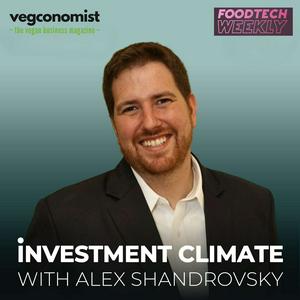
Descarga la app gratuita: radio.net
- Añadir radios y podcasts a favoritos
- Transmisión por Wi-Fi y Bluetooth
- Carplay & Android Auto compatible
- Muchas otras funciones de la app
Descarga la app gratuita: radio.net
- Añadir radios y podcasts a favoritos
- Transmisión por Wi-Fi y Bluetooth
- Carplay & Android Auto compatible
- Muchas otras funciones de la app


Investment Climate
Escanea el código,
Descarga la app,
Escucha.
Descarga la app,
Escucha.







